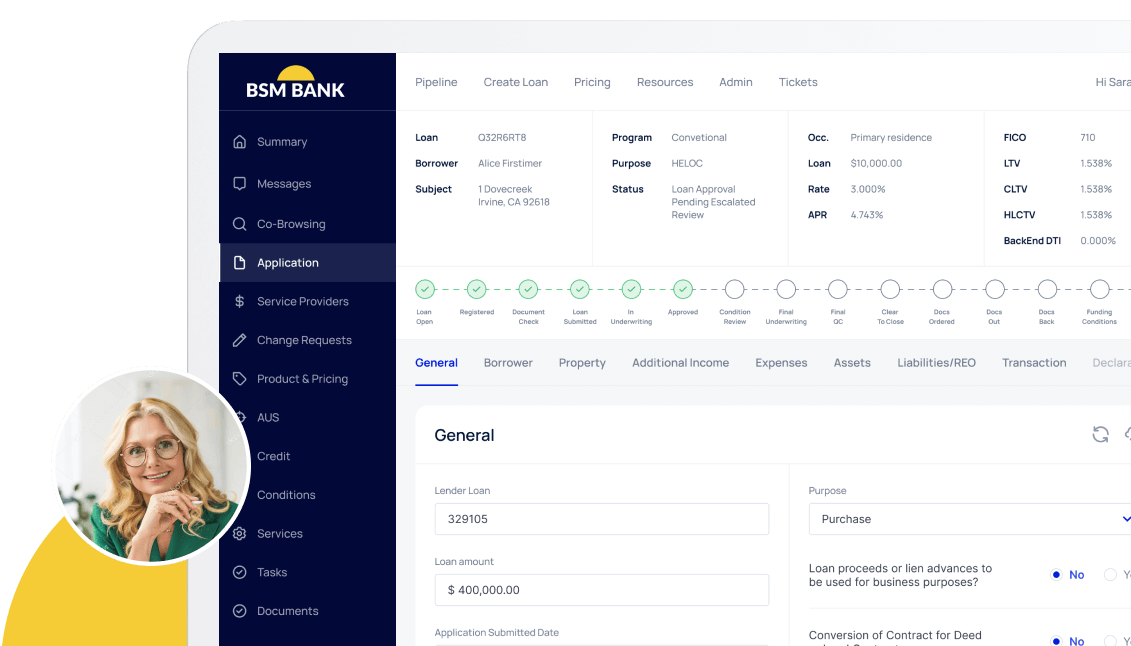The transition from loan officer to realtor may seem unconventional, but it’s a growing trend. According to the National Association of Realtors, there were 3.86 million units sold in August 2024, highlighting the strong demand in the real estate market.
Many loan officers are drawn to this shift by the opportunity for greater career flexibility, higher earning potential, and the ability to guide clients through every step of the home-buying process. Loan officers can tap into new professional growth and satisfaction levels by moving to real estate.
Table of Contents
Expanded Career Opportunities
One of the most compelling reasons loan officers become realtors is the potential for expanded career opportunities. While being a loan officer is fulfilling, working as a realtor opens new doors.
Loan officers are responsible for helping clients secure the best mortgage options for their needs. Still, once the loan is approved, their part in the home-buying process is mostly complete. On the other hand, realtors see the home-buying transaction from start to finish, guiding buyers through home tours, negotiations, offers, and closing.
For loan officers who thrive on building long-term relationships with clients, becoming a realtor allows them to stay involved throughout the process, providing a more comprehensive service.
Additionally, realtors can explore diverse real estate niches such as commercial real estate, luxury properties, or even property development. This variety can appeal to loan officers looking to expand their horizons and build a more dynamic career.
In-depth knowledge of Financing
Loan officers deeply understand financial products, including mortgages, loan types, and interest rates. This financial expertise gives them a competitive edge when transitioning into real estate. Many buyers and sellers need clarification on the economic aspects of purchasing a home. Realtors who were once loan officers can offer invaluable insights into the mortgage process, helping clients feel more confident about their decisions.
Explaining financial terminology, guiding clients through pre-approval processes, and advising on securing competitive mortgage rates make former loan officers-turned-realtors uniquely qualified. Buyers often look for realtors who can help them understand the financial implications of their real estate decisions, and this dual expertise allows former loan officers to build trust with clients faster.
Complementary Skill Set
The skill sets of loan officers and realtors overlap significantly, making the transition between these professions smoother. Loan officers excel in communication, attention to detail, and customer service—all critical qualities for successful realtors. Both loan officers and realtors work with clients to navigate complex processes, requiring patience and the ability to explain difficult concepts in an easy-to-understand manner.
Furthermore, loan officers are accustomed to working in a fast-paced, deadline-driven environment where paperwork is integral. Realtors face similar pressures, with real estate transactions requiring timely submission of offers, contracts, and legal documents. The shared focus on documentation, legal compliance, and client management means that loan officers are well-prepared to handle the responsibilities of a realtor.
Subscribe to BeSmartee 's Digital Mortgage Blog to receive:
- Mortgage Industry Insights
- Security & Compliance Updates
- Q&A's Featuring Mortgage & Technology Experts
Increased Earning Potential
Another reason loan officers become realtors is the potential for increased earning opportunities. Loan officers typically earn a salary plus commission. Still, in real estate, earnings are largely commission-based and directly tied to the number of transactions completed. Becoming a realtor can be financially rewarding for highly motivated loan officers with a knack for sales and networking.
As a realtor, experience, reputation, and market size increase income potential. Former loan officers with a network of contacts from their mortgage lending days can capitalize on those relationships to quickly build a client base. The potential for uncapped earnings often attracts loan officers eager to grow their income and explore entrepreneurship in real estate.
Flexible Work Environment
Loan officers typically work standard business hours, often tied to the demands of banks or lending institutions. On the other hand, real estate agents enjoy much more flexibility in their work schedules. Realtors can set their hours and manage their workload based on client needs, property showings, and market trends. For loan officers seeking more autonomy over time, the transition to real estate offers the freedom to create a work-life balance that suits their lifestyle.
Additionally, real estate agents can work independently or with a brokerage. This flexibility appeals to many entrepreneurial loan officers who want to take control of their professional journey. The chance to be one’s boss and steer the direction of their career is a significant motivator for those leaving the loan industry behind.
Building Stronger Client Relationships
Loan officers often build short-term relationships with clients, focusing primarily on the financial side of the home-buying process. However, many loan officers enjoy the relationship-building aspect of their job and want to engage with clients on a deeper level. Becoming a realtor allows loan officers to create long-lasting relationships by guiding clients through the home-buying journey.
In real estate, maintaining relationships is crucial for building a successful business. Many buyers and sellers rely on referrals and repeat clients. Former loan officers with a reputation for excellent customer service can leverage their existing network for future real estate transactions. By transitioning to real estate, loan officers can develop a more personal connection with their clients, making their work even more rewarding.
Conclusion
The path from loan officer to realtor is a natural progression for many professionals in the financial sector. The combination of financial expertise, complementary skill sets, and the desire for career growth motivates loan officers to explore real estate as a new professional avenue. With increased earning potential, flexible work environments, and the ability to stay involved throughout the home-buying process, it’s easy to see why many loan officers find real estate attractive.
Whether you’re a loan officer considering a switch to real estate or a real estate professional looking to streamline your processes, BeSmartee can help. Our cutting-edge digital mortgage solutions, like Bright POS and Bright Connect, are designed to simplify mortgage origination and provide an enhanced client experience. With BeSmartee, you can process loans faster, close deals quickly, and grow your business. Contact us to learn how we can support your career journey today!




